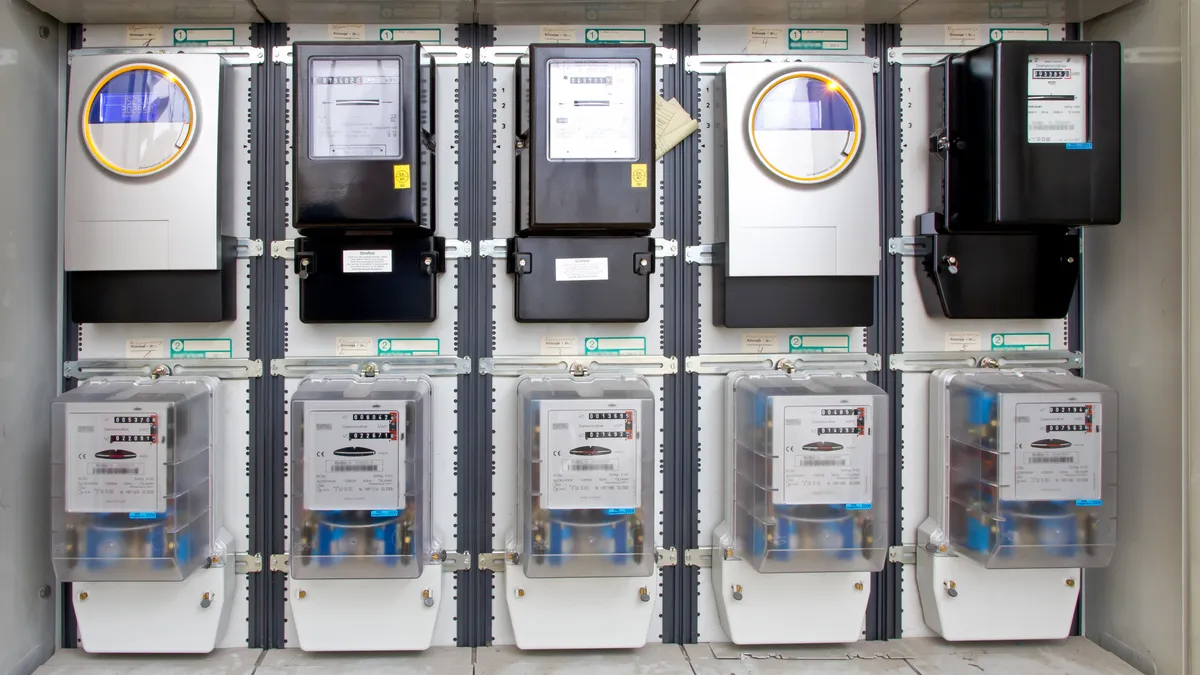Dive Brief:
- The Pennsylvania Public Utilities Commission and Exelon utility subsidiary PECO Energy have separately asked the state's Supreme Court to review a lower court's determination they say threatens plans for all electric customers to have a smart meter.
- In October, the Commonwealth Court of Pennsylvania ruled legislation requiring utilities to "furnish" smart meters did not mean customers were forced to take the meters if they did not want them. Utilities say the decision threatens billions in investment and years of design and deployment.
- Many states offer customers the ability to opt out of smart meter deployments, but Pennsylvania utilities say the state law did not provide that option. Some individuals fear adverse health effects from the meters' radio frequency (RF) emissions, but experts say it is typically a small number of customers who opt out.
Dive Insight:
Smart meters are widely considered to be safe, but energy companies often make accommodations for customers who do not want RF exposure.
The Commonwealth Court concluded that a group of customers fighting to have the meters removed from their property had not proven they faced a health risk — but the court did accept arguments that state law doesn't require them to take the meters.
"Most utilities have a way for customers to opt out of a smart meter and some charge them for the extra cost," according to Jordan Nachbar, spokesperson for the Smart Electric Power Alliance. "During their smart meter rollouts, many utilities post studies to combat some of the misinformation."
Arizona Public Service, Xcel Energy Minnesota, Orange and Rockland Utilities, Hawaiian Electric and others have devised systems to allow customers to decline the meters, according to a 2019 report by Navigant Research. The firm is now known as Guidehouse.
"Vocal customers have raised privacy and health concerns related to smart meters and their communications networks," the report found, "and some regulators have mandated opt-out programs to placate those concerns." The development of opt-out programs "has been addressed in a myriad of ways by electric utilities across the nation."
"It's typically a very small number of customers" that take advantage of the opt-out, according to Guidehouse Senior Research Analyst Michael Kelly. The number of customers is usually below 5%, he said in an email.
The attorney for PECO customers seeking to have their smart meters removed says the court's decision is a "big win for people concerned about RF."
"The court held that there is no mandate for all Pennsylvania citizens to be exposed to smart meters without opt outs," said Philadelphia attorney Steven Harvey.
But since Pennsylvania Act 129 was passed in 2008, utilities have interpreted the law as a mandate to install smart meters for all customers. The bill addressed efficiency, grid technologies, time-of-use rates and other power sector modernization topics.
"It's been interpreted that way from the time it was passed," said Terrance Fitzpatrick, the president of the Energy Association of Pennsylvania. The group represents electric utilities.
"To have that overturned injects uncertainty into the whole process," said Fitzpatrick.
Following the lower court's decision, the PUC on Oct. 29 stayed multiple active smart meter proceedings, "until the broader legal issues are resolved," according to a commission spokesperson. Those include the customer complaint litigation resulting from the rollouts.
According to the PUC's petition for review with the state Supreme Court, as of Oct. 19, 2020, there were 74 formal complaints involving smart meter deployment currently pending before the commission.
The commission said the potential impact of the Commonwealth Court's decision is so significant that it "requires prompt and definitive resolution by the Pennsylvania Supreme Court."
The lower court's decision said it reversed "that portion of the PUC's decisions finding it lacked authority for accommodations of customers' requests to avoid RF emissions," and remanded those back to the commission.
PECO has installed more than 1.72 million electric meters, largely completing its rollout, which the utility says allow it to identify and respond to customer outages faster while also enabling new services.
In its petition for review, PECO told the Supreme Court that the PUC, beginning in 2009, determined that utilities were "required to deploy smart meters universally — that is, to all customers. The smart meter systems now in use by all electric distribution companies in Pennsylvania, including PECO, were designed and constructed based on that guidance."
The court's decision that a universal mandate is not required "puts at risk nearly a decade of existing smart meter design, construction, and deployment, totaling in the billions of dollars," the utility said.
PECO also told the Supreme Court that the term "furnish" is "used throughout utility law" and changes to that reading "may apply to all service and technology provided by electric distribution companies, which would create a patchwork of utility services that must be tailored to the demands and fears of individual customers."
According to Fitzpatrick, utilities often make accommodations on a case-by-case basis for customers who do not want a smart meter, but reject the idea that an opt-out system is required.
The court's decision is "really opening the flood gates," Fitzpatrick said.















